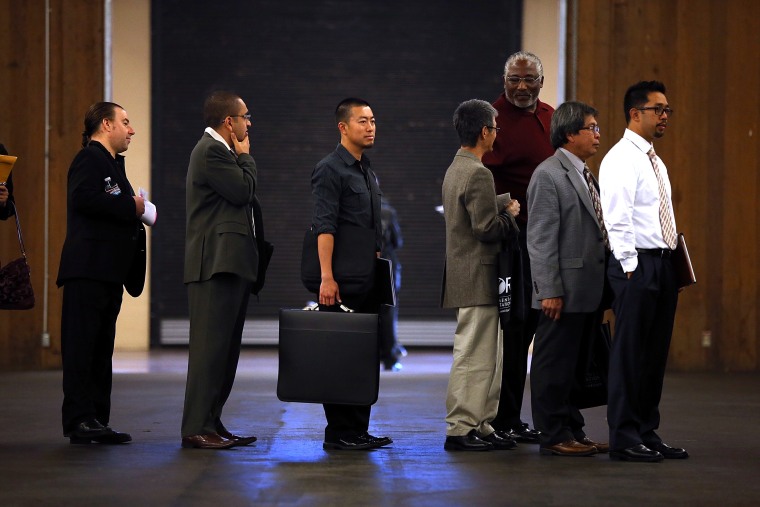U.S. job growth was lackluster in September as the recovery continued to move forward in low gear.
The economy added 148,000 jobs last month, with the unemployment rate moving down a tick to 7.2 percent—the lowest level since November 2008. But those numbers aren't much to celebrate: Job growth was even more sluggish than expected in September, and that was before the shutdown even hit the economy.
The release of the September jobs report was delayed for three weeks because of the government shutdown, which delivered a hit to the economy that's expected to weaken October's numbers. Moody's Analytics estimates the shutdown has depressed fourth-quarter economic growth by $20 billion, and consumer confidence fell to a nine-month low earlier in October.
Even the bright spots in the report had some caveats: Retail and temporary help services were responsible for 40,000 of the jobs created in September, both of which tend to be low-wage and low-security positions. Construction added 20,000 jobs in September—better than in recent months, but still basically unchanged from a year ago.
And that's the fundamental problem with the economy right now: We're stuck in low gear, with relatively steady but very sluggish growth that means a full recovery will be a long time coming. The number of long-term unemployed has dropped by 725,000 over the past year, but there are still 4.1 million people who've been looking for work for more than 27 weeks, and that number barely budged in September. In fact, the phrase "unchanged" or "essentially unchanged" appears seven times in jobs report.
Washington, meanwhile, continues to get in the way of the recovery. While analysts expect job growth to recover from the shutdown, there's another set of fiscal deadlines in January and February, giving Congress yet another opportunity to hinder the economy instead of help it.

